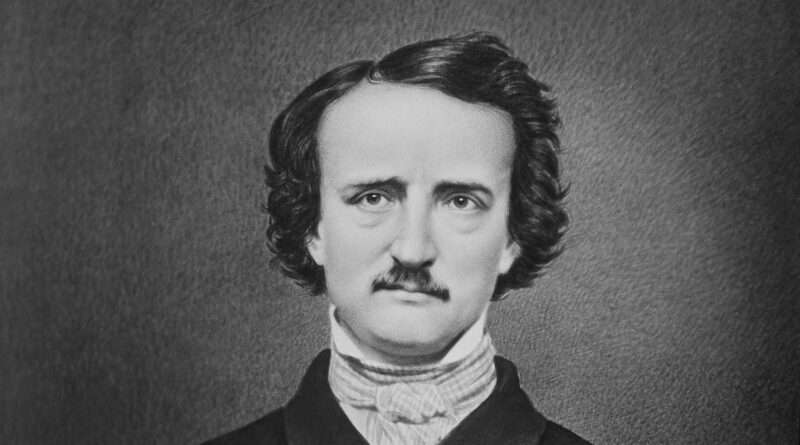Edgar Allan Poe Death in Baltimore Maryland
The death of Edgar Allan Poe remains one of the greatest literary mysteries of all time. On October 3, 1849, the master of macabre was found in a delirious state on the streets of Baltimore, Maryland. Just four days later, on October 7, he succumbed to an unknown fate. The circumstances surrounding his death have been shrouded in speculation, ranging from alcoholism and disease to foul play.
To this day, scholars and enthusiasts continue to debate the real cause of Poe’s demise. His final words—“Lord help my poor soul”—only deepen the enigma. This article delves into Poe’s last known movements, the strange accounts of his deteriorating health, and the various theories that attempt to explain his tragic end.
The Events Leading Up to His Mysterious Death
Edgar Allan Poe was last seen alive, healthy and sane in Richmond, Virginia, where he had been trying to secure funding for his literary journal, The Stylus. He was engaged to Elmira Royster Shelton, a wealthy widow, and planned to marry her later that year. On September 27, 1849, he left Richmond for Philadelphia but never arrived at his destination.
What happened to Poe in the days following his departure remains unknown. It wasn’t until October 3 that he was discovered outside Ryan’s Tavern in Baltimore by Joseph W. Walker, a local compositor. Walker found Poe disoriented and dressed in tattered clothes that did not belong to him. He immediately contacted one of Poe’s acquaintances, Dr. Joseph Snodgrass, who arranged for Poe to be taken to Washington College Hospital.
At the hospital, Poe was reportedly incoherent and unable to explain what had happened to him. He drifted in and out of consciousness, experiencing hallucinations and bouts of delirium. Witnesses noted that he repeatedly called out the name “Reynolds,” though no one has ever identified who this mysterious individual might have been.
On October 7, 1849 Edgar Allan Poe passed away in the hospital, without anyone truly knowing what happened to him or the cause of his death.
Theories Behind Poe’s Death
The true cause of Poe’s death remains an unsolved mystery. Over the years, numerous theories have emerged, each attempting to explain his sudden decline and eerie final days.
Alcoholism and Delirium Tremens
One of the earliest theories suggested that Poe died as a result of alcohol poisoning or delirium tremens, a severe withdrawal condition caused by excessive drinking. Poe had struggled with alcoholism in the past, and some contemporaries claimed he had relapsed. However, his close friends, including his fiancée Elmira Royster Shelton, insisted that he had been avoiding alcohol in the months leading up to his death.
Cooping: A Political Scheme Gone Wrong
A more sinister theory is that Poe was the victim of “cooping,” a form of voter fraud practiced in Baltimore at the time. In this scheme, individuals were kidnapped, drugged, and forced to vote multiple times in different disguises. Many cooping victims were left to die after election day, their identities erased by their abductors. Some researchers believe this would explain why Poe was found wearing unfamiliar clothing and why he appeared delirious when discovered.
Rabies or a Neurological Disorder
A more recent medical theory suggests that Poe may have succumbed to rabies. In 1996, Dr. R. Michael Benitez analyzed Poe’s symptoms and concluded that they closely aligned with rabies, which can cause confusion, fever, and erratic behavior. Others have proposed conditions such as brain tumors, epilepsy, or syphilis as possible causes of his mysterious demise.
Carbon Monoxide Poisoning
Some researchers have even suggested that Poe was a victim of carbon monoxide poisoning due to exposure from coal gas used in 19th-century lighting. However, modern forensic analysis has cast doubt on this theory, as there is no substantial evidence to support it.
Murder and Conspiracy Theories
Another theory, though less widely accepted, is that Poe was murdered. Some believe he may have been targeted by political enemies or literary rivals. Others speculate that he was beaten and left for dead due to a personal dispute. However, no concrete evidence exists to substantiate these claims.
The Controversy Over His Burial and Autopsy
Adding to the mystery is the fact that Poe’s body was never properly examined. No official autopsy was conducted, and his medical records have long since disappeared. The cause of death was initially listed as “phrenitis” or “inflammation of the brain,” a vague and commonly used term at the time.
Poe was buried in an unmarked grave at Westminster Hall and Burying Ground in Baltimore. In 1875, his remains were moved to a more prominent location within the cemetery. However, some historians question whether Poe’s body was truly exhumed, as reports suggest that the remains were too deteriorated for proper identification.
Poe’s Legacy: A Life That Ended in Mystery
Despite the tragic circumstances of his death, Edgar Allan Poe’s legacy remains immortal. His works of horror, mystery, and the macabre continue to inspire readers and writers around the world.
Poe’s death has also contributed to his mythos, adding an element of real-life horror that rivals even his most chilling tales. The unanswered questions surrounding his final days have only cemented his reputation as one of the most enigmatic figures in literary history.
Theories will continue to emerge, but the truth behind Poe’s demise may forever remain as shadowy as the ghostly figures that haunt his stories. The mystery of his death endures, just as his works do, leaving us to ponder what really happened on that fateful October night in 1849.
Discover more from City Towner
Subscribe to get the latest posts sent to your email.




